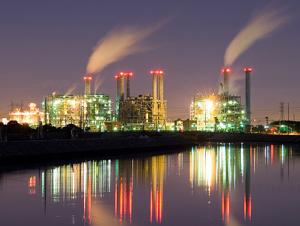Republicans not sold on cap and trade
(Image: alkhodarev, Creative Commons)
The House Energy Committee is scheduled to vote on a climate change bill next week. Democrats on the panel say they are finally closing ranks after weeks of internal bickering. Wyoming Republicans have turned up their volume calling the bill a big tax on consumers. Sara Sciammacco sets off to find out the true cost of cap and trade.
The mission gets off to an auspicious start, when Republican Congresswoman Cynthia Lummis has a ready answer: "$3100 per year, per household in overall energy costs. That includes electricity, and gasoline and a variety of energy uses."
Under cap and trade, the government would set yearly limits on greenhouse gas emissions. Companies would either get emissions allowances from the government or buy from a carbon market.
Lummis: "Under cap and trade, the government would set yearly limits on greenhouse gas emissions. Companies would either get emissions allowances from the government or buy from a carbon market."
Under cap and trade, the government would set yearly limits on greenhouse gas emissions. Companies would either get emissions allowances from the government or buy from a carbon market.
For example, here’s Administrator Lisa Jackson of the Environmental Agency: "The impact on an average household—an annualized impact for year, is around 98 to 140 dollars."
Jackson says the EPA study is based on the assumption that the government returns forty-percent of the revenue from selling allowances to consumers.
Wyoming Republican Senator Mike Enzi was sitting in a hearing on the economics of cap and trade. And the more he listened, the more deeply he furrowed his brow: "Now I’m very confused.
"We are going to have the government print some allowances, then we are going to auction them, and the businesses I guess would buy them in proportion to their emissions, and then the companies would pass that cost on to their customers. The money from the allowances would then be distributed back to the people so they would not revolt over their increased prices. Now it’s starting to sound like a ponzi scheme to me."
Defenders of cap and trade say companies would rush to find cleaner technologies, because they can save money by using fewer allowances. They also say consumers would choose to save energy or use clean fuels.
Massachusetts Democratic Senator John Kerry seemed as frustrated as Enzi: "Almost every economic model I’ve seen thus far, certainly from the industries, never takes into account the cost of the tax to the consumer of the catastrophic damages, never takes into account the energy efficiencies and savings or the new jobs. The modeling is about as deficient or purposefully deficient as any modeling I’ve ever seen."
According to a widely-known study by British economist Lord Stern, if no action is taken, global warming would wipe out global GDP by up to twenty percent. So to Democrats, it’s that glum picture versus a promising land of green jobs and cleaner fuels.
That sounds like pie in the sky to Republican Senator John Barrasso: "Half of all electricity in the United States comes from coal, but only one percent of the electricity in the United States comes from wind and solar, so if you were to double wind and double solar next year, and then the year after that, the year after that, it would hardly keep up with the needs of America."
The numbers are in dispute again. The American Wind Energy Association reports that renewable energy produced three percent of the country’s electricity last year. It says wind alone will be able to generate twenty percent of the US power by 2030. As to the true cost of cap and trade? It depends on who you ask.
Wyoming Public Radio’s Sara Sciammacco reports for "Capitol News Connection."
Created by Bureau Chief and Executive Producer Melinda Wittstock, Capitol News Connection from PRI provides insightful, localized coverage of participating stations’ congressional delegations.
